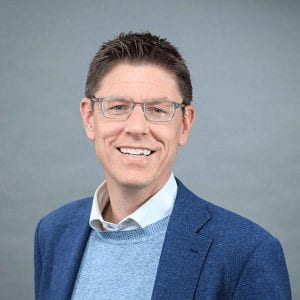Illinois is carrying forward its proud tradition of innovation by providing a home for our nation’s premier quantum startups and quantum technologies.

Guest Article by Brad Henderson
Our many strengths as a region – from our tier-one universities; to our robust and diverse talent workforce; to our ground-breaking research institutions – have fueled our early and swift lead in the race to quantum leadership.
Quantum information science technology (QIST) has the promise to impact and enhance nearly every aspect of the way we do business – from modeling molecular simulations used in pharma and bio sciences research to helping to expand AI and machine learning technologies that can transform industries like fintech, security, and more.
In Illinois, our researchers, innovators, and quantum-focused academic and business leaders are working collaboratively to drive next-generation quantum tech that will infiltrate nearly every aspect of our daily lives. We are not only collectively witnessing but ushering-in quantum technology across nearly every aspect of our tech sector, from the launch of new startups and venture capital investment to ground-breaking research and workforce development.
The abundant opportunity our region holds to continue advancing and driving momentum for QIST is clear. Whether you look at the research centers and institutes developing quantum computing technologies, turn your attention to the launch of viable quantum-centric businesses, or count the substantial federal and state investments across our universities and national labs, our region boasts a vast range of examples of how we’re paving the road to the world’s quantum future.
5 Reasons Why Illinois Leads in Quantum:
1) Chicago is home to Duality, the first startup accelerator dedicated to quantum science. Duality, the first-of-its-kind accelerator program in the nation exclusively focused on supporting quantum startups, launched in 2021 and recently announced the launch of Cohort 3.
2) The Chicago Quantum Exchange (CQE) serves as an intellectual hub for advancing the science and engineering of quantum information. The CQE community is a catalyst for research activity and is anchored by the U.S. Department of Energy’s Argonne National Laboratory and Fermi National Accelerator Laboratory, the University of Illinois Urbana-Champaign, the University of Wisconsin-Madison, and Northwestern University.
3) Illinois boasts the most National Quantum Information Science Research Centers in the nation, a result of significant federal and state investments. Recognizing our focus on quantum research, development, and innovation, the federal government has directed over $250 million in grants to spur even more quantum growth in our region. Today Chicagoland houses two of five federally funded U.S. Department of Energy National Quantum Information Science Research Centers, housed at Argonne National Laboratory and Fermi National Accelerator Laboratory. What’s more, through the Governor’s historic Rebuild Illinois capital plan, the state is directing another $200 million to the Chicago Quantum Exchange to spur research that will help solidify our status as a top choice quantum hub.
4) The region established two globally recognized Quantum Leap Challenge Institutes including the Hybrid Quantum Architectures and Networks (HQAN) and Quantum Sensing for Biophysics and Bioengineering (QuBBE). HQAN, led by the University of Illinois at Urbana Champaign focuses on novel approaches to building, networking, and scaling quantum computers. QuBBE, led by the University of Chicago, focuses on biological applications of quantum technologies. Together, these institutes demonstrate how our region excels in quantum research that addresses many applications across various sectors, from life sciences to quantum computers.
5) Illinois universities are driving quantum talent and workforce development. Illinois is home to a high concentration of top-tier universities, such as the University of Chicago, Chicago State University, Illinois Institute of Technology, the University of Illinois Urbana-Champaign, University of Illinois Chicago, and Northwestern University. These institutions collectively offer world-renowned undergraduate and graduate programming focusing on degrees that are essential and required for quantum information science and engineering careers.

